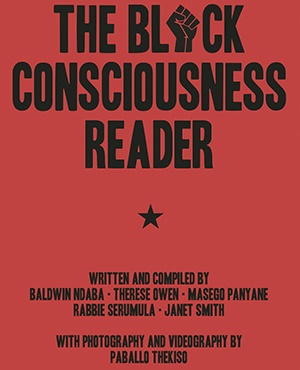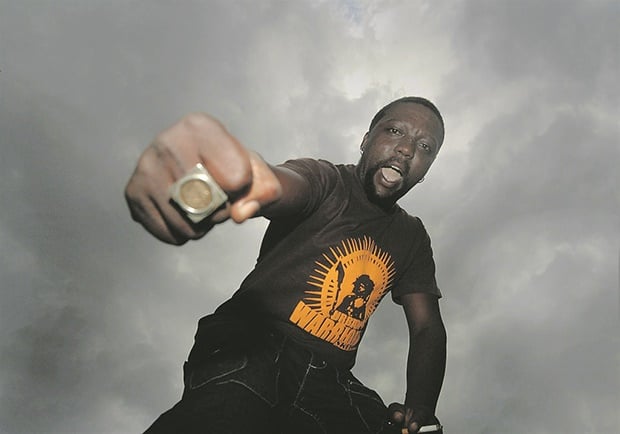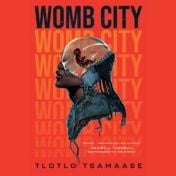
The Black Consciousness Reader by Baldwin Ndaba,
Therese Owen, Masego Panyane,
Rabbie Serumula, Janet Smith and Paballo Thekiso.
Jacana Media
354 pages
R209 at takealot.com
The township children would choose kwaito, a genre they claimed as their identity.
Kwaito exploded with the birth of democracy in South Africa.
It was the ultimate celebration of freedom among black youth and drew an extraordinary culture with it, including a ‘uniform’ of ‘spotties’ (low-slung, soft hats), pantsula dancing, slowed-down House beats and ’kasi-style (township) lyrics.
***
One artist who stayed truthful within his music from the get-go was kwaito and TV superstar Zola, who hit the ground running with his groundbreaking debut single, Mdlwembe.
Until then, kwaito lyrics had been somewhat one-dimensional, but as the kwaito revolution expanded and independent, black-owned record companies started to proliferate, producing and performing greats like Arthur Mafokate, the deejay Oskido and the vocal act Trompies became not only artists, but also thriving entrepreneurs. Later, Zola would be among them.
Oskido and his partner, Bruce Dope, joined forces with the members of Trompies to form one of the most successful record companies in South African history: Kalawa Jazmee.
They made a definitive change to the shape of the sound of black music.
Soaring acts of the 1990s and 2000s like Boom Shaka, Bongo Maffin and Mafikizolo would not be the South African icons they became were it not for Kalawa Jazmee and magic-weaving producers like Oskido and his cohorts Spikiri and Mahoota.
When approached by companies like Universal Music and Sony Music, Oskido was somewhat puzzled as to what these multinationals could offer them: ‘I used to go to taxi ranks with Boom Shaka, set up a big sound system and get Lebo [Mathosa, one of the twosome, with Thembi Seete] and the rest to mime to their music,’ recalls Oskido.
‘I would then open my boot and sell their CDs and cassettes to the fans right then and there. I already had the CDs, complete with the covers and artwork, and I had people all over the country selling my products from their car boot, so why did I need these major labels?’
That’s true Black Consciousness (BC) style, with an edge of ’kasi chutzpah, which imperialist music moguls from especially the US could not counteract.
***
Arthur Mafokate exploded onto the scene with the big, big song with the incendiary name ‘Kaffir’.
The chorus was an instruction: ‘Hey baas, don’t call me kaffir!’
This was emphasised by melodic female backing vocals: ‘Don’t call me kaffir-r-r-r.’ (‘Kaffir’ remains a highly insulting racist hate name for black South Africans. ‘Baas’, Afrikaans for ‘boss’, was the name blacks were instructed to call white men during apartheid.)
Arthur’s independent record label 999 discovered major stars like Lira, Queen and Chomee, and through his connections with the ANC Youth League (ANCYL), Arthur would go on to do massive productions for party rallies and events.
Chomee, in particular, would go on to be one of ANC President Jacob Zuma’s and [former ANCYL leader, now leader of the Economic Freedom Fighters, Julius] Malema’s favourite sweethearts on stage.
By 1998, kwaito was stratospheric – and looked like it was here to stay.
The financial independence the genre gave to black musicians, producers and deejays like Mdu, Spikiri, Brown Dash, TKZee and Mzekezeke was overwhelming.
It came with swagger, fame and celebrity.
But the lyrics were still rather empty. Some were defiantly crass.
It was the crassness which prevented many kwaito tracks being playlisted on radio.
It was also what attracted the attention of [former president Nelson] Mandela.
Being a hands-on leader as he was, he called a meeting with the kwaito leaders – Oskido and the Kalawa Jazmee team among them.
Mandela said that, while he ‘appreciated’ the fact that kwaito was the popular face of a free black youth, with freedom came responsibility.
He said the foul language they used was ‘inappropriate’, and that the kwaito artists should realise their power and take responsibility.
‘We all nodded in agreement, and after that we cut down on the swearing,’ says Oskido. ‘How could we not? It was, after all, Nelson Mandela.’
Then along came Zola: ‘My lyrics are hard-hitting and have always been uncomfortable for the powers that be,’ he says. ‘As a musician, you have to be brave and be the voice of the people.
In the beginning I truly didn’t know what to sing about except what I knew [of black life] and what I witnessed.’
The independent, black-owned record label Ghetto Ruff, which signed Zola, realised he was special, and not ‘just another’ kwaito artist.
Zola had intelligence, passion and the gift of the gab. He could communicate with township people, rural people and even an average white person, given the chance.
He was as comfortable in the boardroom as he was sitting in a shack in Alexandra or in a kraal in deepest KwaZulu-Natal.
Zola had presence on and off the camera. That was how he got his own TV show on the public broadcaster, the SABC, which signed off on Zola 7.
It centred on black people turning to him to help them solve their problems, and it was an outrageous success. But Zola did not want ‘his black people begging for his help’.
He insisted that, before he featured them on the show, they had to show initiative and prove they had already tried to help themselves.
That black self-awareness, Zola hoped, would assist the urgent need for black South Africans to move out of the victim mentality created by apartheid.
Zola was soon the most powerful TV star in the country. His music complemented that surge.
‘I think that kwaito and my music resonated with different souls, with people who grew up in the apartheid times as well as the younger people,’ he says. ‘In terms of my lyrics and my television show, I warned the youth that they had to go to school and get an education.
‘Back then, everybody spoke BC. At some point, it became less BC and more South African.’
Zola believes his fans were able to relate to him because ‘I never became too bling or Hollywood. People knew I would turn up in a squatter camp. We took people’s lives beyond a dream. It became reality.’
He sees contemporary black-dominated movements like the student uprising #FeesMustFall as ‘the awakening of a new BC’.
‘The youth used to read about protests and mass action in textbooks. But in 2015, they inhaled it ... They inhaled the teargas and felt the rubber bullets.’
He laughs: ‘I can’t believe those buffels [South African police tanks, first used during apartheid] are still working. But on a serious note, the students genuinely panicked about their future.
‘South Africa almost caught fire. Thing is, in those days, BC came with a lot of humility and less individuality. Nowadays, there are major challenges in our society because of individualism.
‘We as black people always operated as a unit, whether it be church, street committees, schooling. Now there is a new animal which is equally as ugly as racism.
‘It is classism. We must remember that the strength of the wolf is in the pack and the strength of the pack is in the wolf. I do believe that with the students’ activities, BC has been revived. But BC behaves best if it has its own way – and no other way.’




 Publications
Publications
 Partners
Partners












